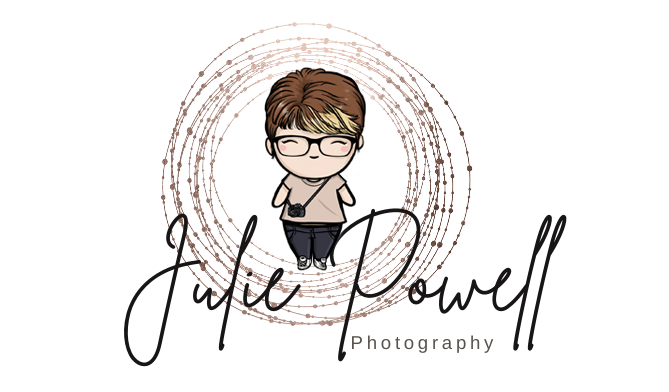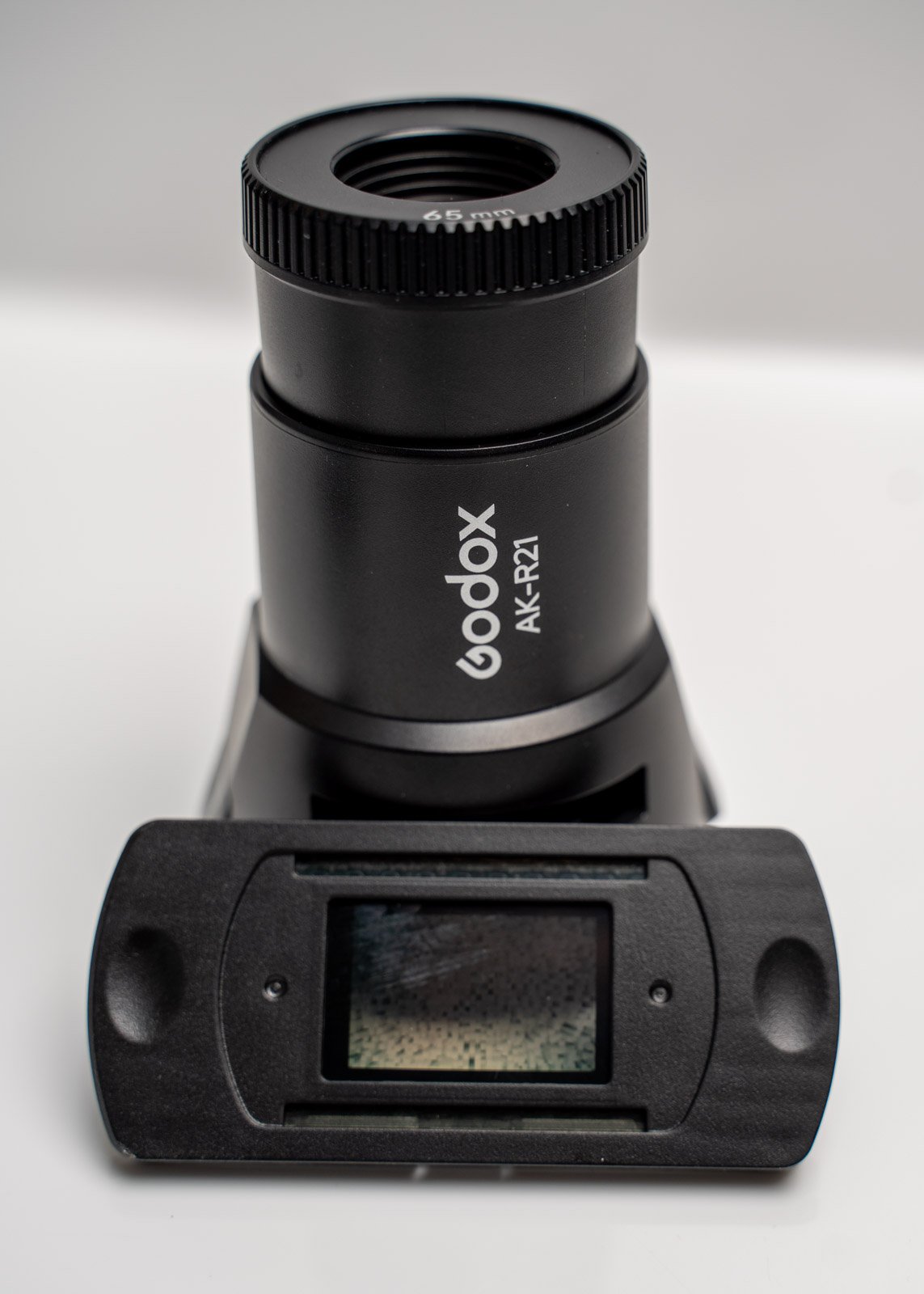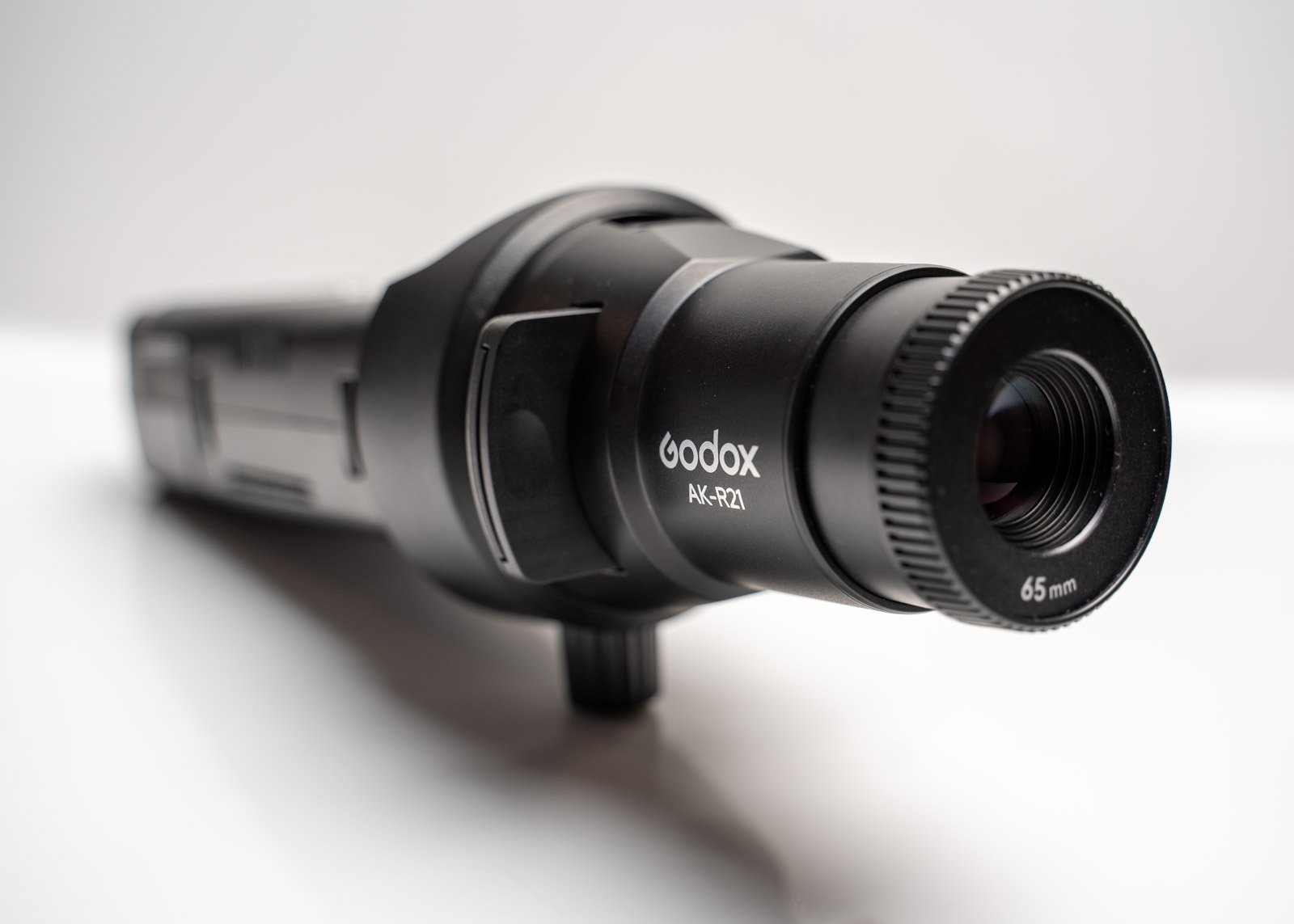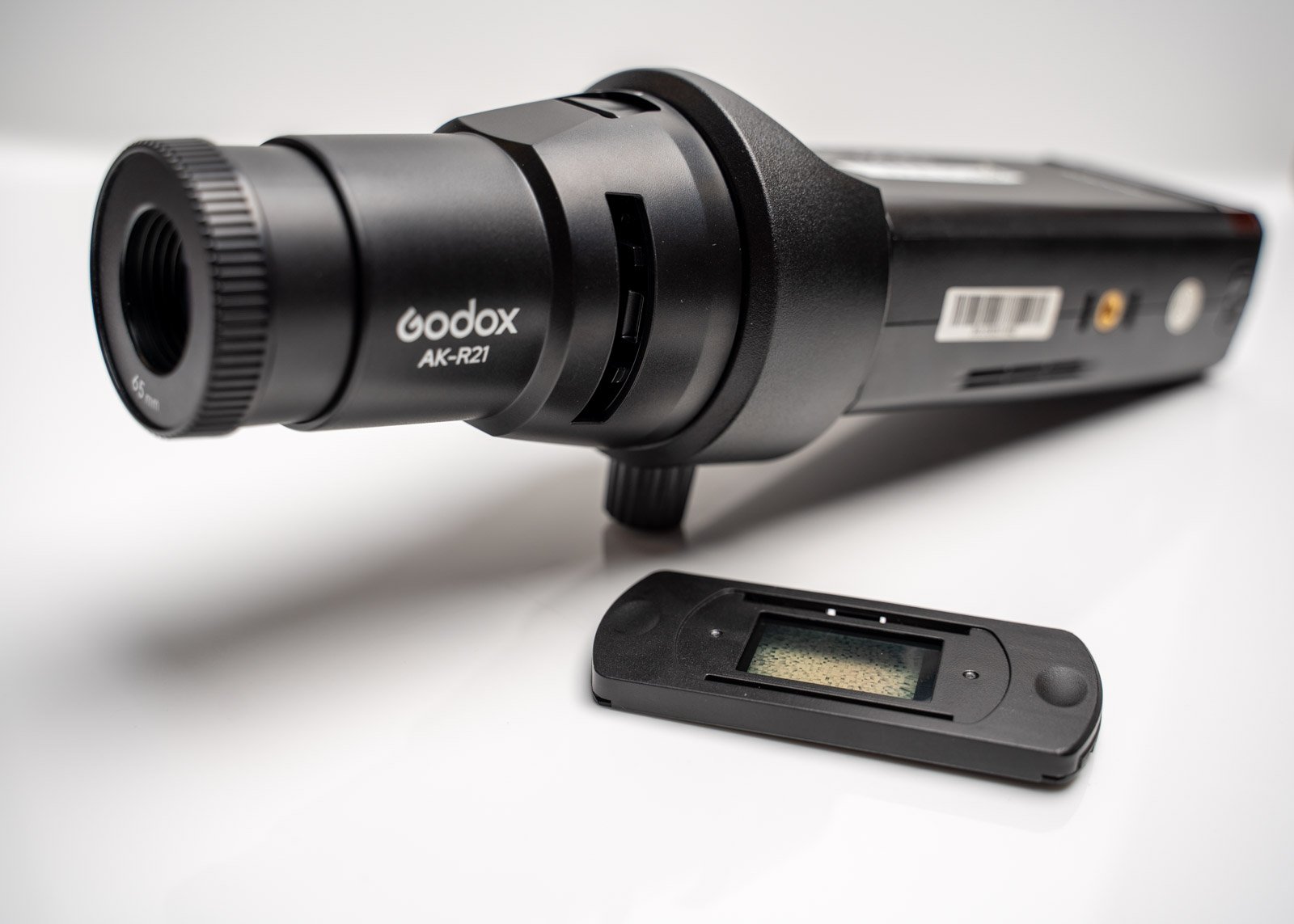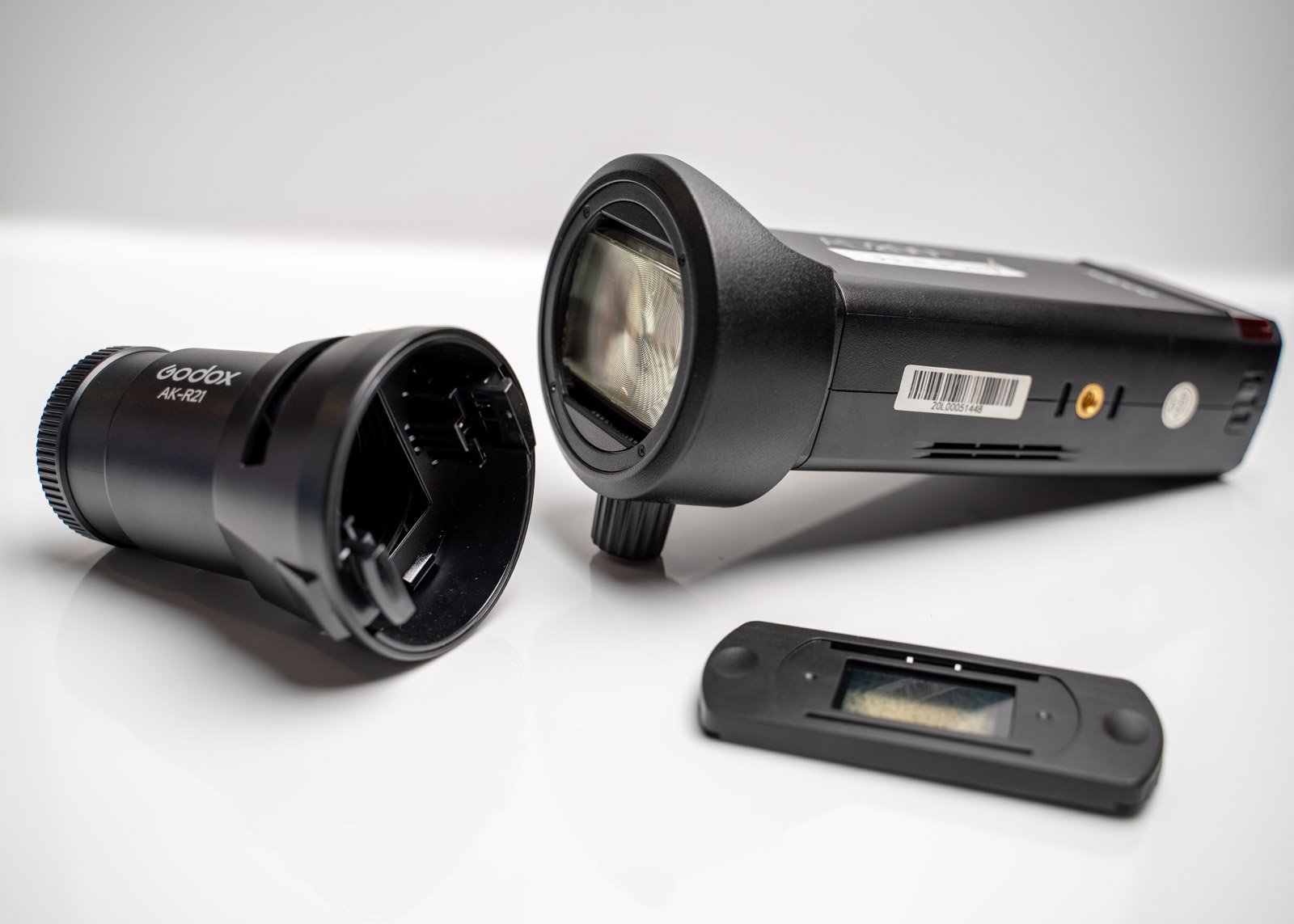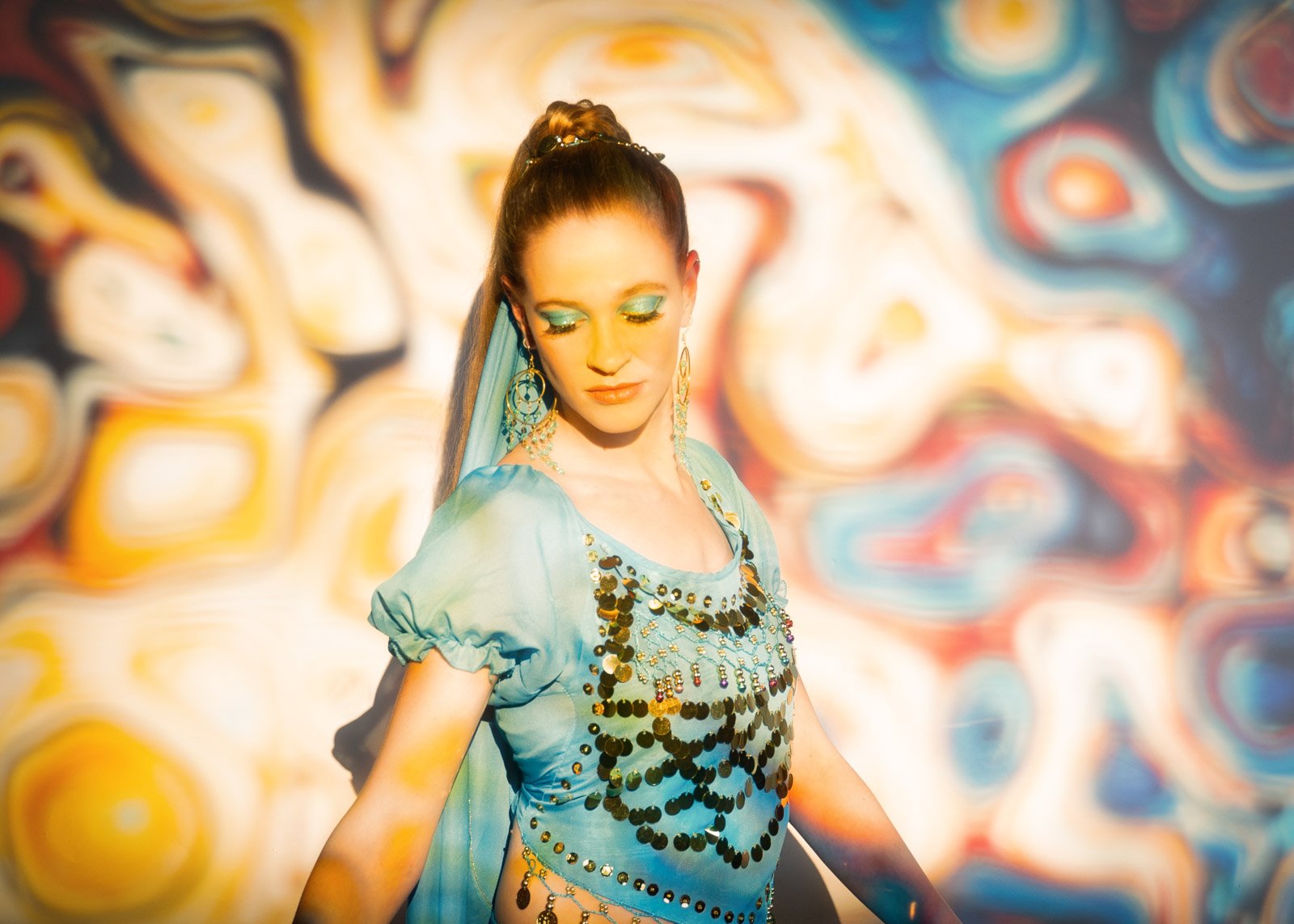Godox AK-R1 Projection Unit: bringing dreams to reality
A terrific way to really add some intrigue to your studio portraits is with a simple projection unit like the Godox AK-R21. It is a little complicated straight out of the box, but a little bit of patience and practice can gain great results in an afternoon or two.
Out of the box, it has no complex menus, but it can be a little fiddly. Add it to your Godox AD100 or AD200 speedlight and create some magic. Let’s have a closer look!
Note: Godox sent the AK-R21 kit to review. However, this is a completely independent review. All thoughts about this Projection unit are our own.
Pros
Once you figure it all out, it’s actually quite easy to use, just a little fiddly
Variable controls for focus and blur on the lens itself
The lens is twist and click and the slide box simply slides in and out.
Minimalist design, albeit all plastic
Small and lightweight, easily fits in your hand
A great range of transparency sets are available
Cons
Made of all plastic, the adaptors connect – but feel a little flimsy, the slide box is quite fiddly as well
I did find it a bit awkward to use at first. I found instructions a little difficult to find
It is quite a process seeing if the image is in the correct location and in focus, setting up in a dark room helps
Godox AK-R21 — Technical specifications
All of the technical specifications are from their website. It is available with an 83mm, 50mm or 65mm lens
Package Dimensions : 25.4 x 20.32 x 12.7 cm
Manufacturer reference : Godox AK-R21+AK-S Full Slide Set KIT
Weight : 680.39 Grams
Godox — Versatility
Get creative with projections
You can adjust the beam, the focus and the amount of blur.
Ergonomics could be a little better. Totally made of plastic, everything clicks and twists together, but feels a little flimsy, and easily dislodged. The angle of the light beam can be adjusted by twisting the end of the lens, and adjusting your distance and height.
It is relatively small and lightweight with an adaptor to fit my Godox AD200. I have the AKR21 adaptor, what I need is the AKR25 adaptor, it may all fit much more securely. I found getting the slide box in and out was a little tricky as well. However, the more I used this unit the easier it all became to use.
Build quality
Sadly it is all plastic, but many of Godox’s products are in the budget-friendly range and using plastic keeps the costs down. It is still relatively sturdy.
Out of the box
What’s in the box
It comes with the Projection unit, the slide box, the lens (varying sizes), the adaptor holder and varying transparency sets. Sadly not a lot of instructions, but watching a few YouTube videos should get you on your way.
Godox – bringing dreams to reality
There are loads of different transparencies to project onto your surface and indeed your subject, big or small. I personally preferred the geometric and abstract images, but the Halloween and space images can be quite effective too.
Mounting
The mounting is a little fiddly, possibly due to the fact that I had the wrong adaptor (AK21 not the AK25), so it connected but not well. I had to be careful not to knock it as it would actually fall off my GodoxAD200. Not good. However, if careful it did work. I used my Godox AD200Pro with the Fresnel head and put it all on a lighting stand. I had it set up at least 2m high and 2m away from my subject. For best results get your focus with the camera and then turn all the lights off. Also projecting on a white paper seamless backdrop worked better than a shiny acrylic surface. I have not tried any other coloured backdrop or material as yet.
Setup
Once I actually figured out how everything worked, it’s just a matter of setting up your subject and then turning the lights off. Turn the modelling light on the AD200, you can then adjust the position of the projected image and by rotating the end of the lens get it in focus or blur. Both can work quite well. I used roughly 1/8 power for a good result on my speedlight. You need to put the transparencies in upside down, but you know once it is in place.
Final thoughts
Space age projections
I have spent a few afternoons playing with this unit and it can be a little tricky. I have also used it in one portrait session to great success. It is tricky to learn, but then I have never used a projector or even a Gobo before. I believe after two afternoons of playing I had the right idea and things seemed to work much better.
If you get frustrated easily, or a quite new to photography and/or studio lighting, this may be a steep learning curve for you. But – if you like to tinker and play, figure out HOW things work, like to get a little creative, then this might be a cool gadget to add to your arsenal.
